Search
Remove Ads
Advertisement
Summary
Loading AI-generated summary based on World History Encyclopedia articles ...
Answers are generated by Perplexity AI drawing on articles from World History Encyclopedia. Please remember that artificial intelligence can make mistakes. For more detailed information, please read the source articles
Search Results
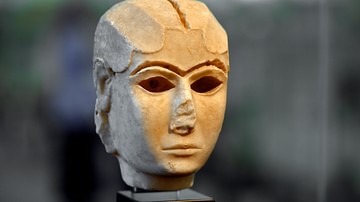
Article
The Iraq Museum & Three Wars: Three Steps from Hell
This article documents and elaborates on the many critical behind-the-scenes events, unknown to the public, before the history leaves us. The author The bulk of the “the land between the two rivers” lies in what we call today...
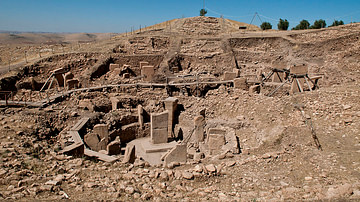
Article
Gobekli Tepe - the World's First Temple?
Located in modern Turkey, Göbekli Tepe is one of the most important archaeological sites in the world. The discovery of this stunning 10,000 year old site in the 1990s CE sent shock waves through the archaeological world and beyond, with...
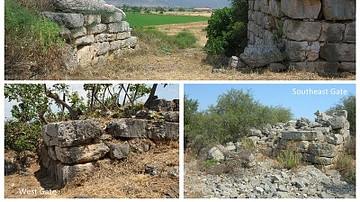
Article
The Island of Gla: A Mycenaean Mystery Solved?
The island of Gla, an enigmatic Mycenaean citadel in the north-eastern corner of the Copais basin lies 70 miles north of Athens, in the region of Boeotia. Lake Copais was the largest lake in Greece until the late-19th century CE when it was...

Definition
Mesopotamia
Mesopotamia (from the Greek, meaning 'between two rivers') was an ancient region located in the eastern Mediterranean bounded in the northeast by the Zagros Mountains and in the southeast by the Arabian Plateau, corresponding to modern-day...
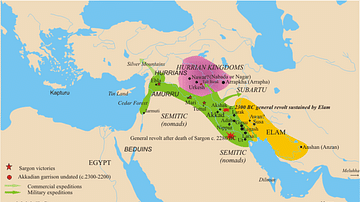
Definition
Akkad and the Akkadian Empire
Akkad was the seat of the Akkadian Empire (2334-2218 BCE), the first multi-national political entity in the world, founded by Sargon the Great (r. 2334-2279 BCE) who unified Mesopotamia under his rule and set the model for later Mesopotamian...

Definition
Sumer
Sumer was the southernmost region of ancient Mesopotamia (modern-day Iraq and Kuwait) which is generally considered the cradle of civilization. The name comes from Akkadian, the language of the north of Mesopotamia, and means “land of the...
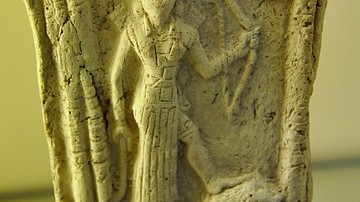
Definition
Ishtar
Ishtar (Inanna in Sumerian sources) is a primary Mesopotamian goddess closely associated with love and war. This powerful Mesopotamian goddess is the first known deity for which we have written evidence. While largely unknown in the modern...
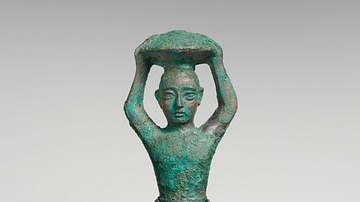
Definition
Shulgi of Ur
Shulgi of Ur (r. 2029-1982 BCE) is considered the greatest king of the Ur III Period in Mesopotamia (2047-1750 BCE). His father was Ur-Nammu (r.2047-2030 BCE), who founded the Third Dynasty of Ur, and his mother was a daughter of King Utu-Hegal...
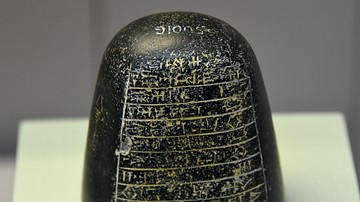
Article
Trade in Ancient Mesopotamia
Local trade in ancient Mesopotamia began in the Ubaid Period (c. 5000-4100 BCE), had developed into long-distance trade by the Uruk Period (c. 4100-2900 BCE), and was flourishing by the time of the Early Dynastic Period (2900-2334 BCE). Developments...
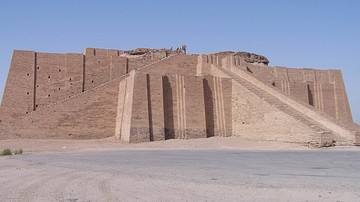
Article
Ten Ancient Mesopotamia Facts You Need to Know
Mesopotamia is the ancient Greek name (meaning “the land between two rivers”, the Tigris and Euphrates) for the region corresponding to modern-day Iraq and parts of Iran, Syria, and Turkey. It is considered the “cradle of civilization” for...